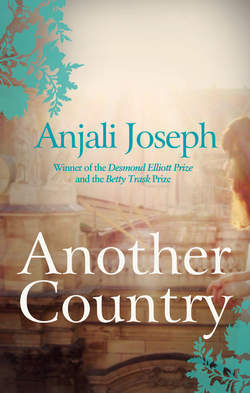Читать книгу Another Country - Anjali Joseph - Страница 5
ОглавлениеChapter 1
Leela, self-conscious, released into the world, walked down the boulevard de Sébastopol. A September afternoon. Chestnut trees allowed their leaves to fall; the warm air carried them to the pavement. She had never seen leaves fall so slowly.
She’d been in Paris a week. She had found herself a studio apartment on the sixth floor of a building on the boulevard Saint-Denis, been to the offices of the language school, and obtained a copy of her contract. She’d gone to a branch of the Poste and tried to open a bank account. The woman behind the desk had looked at her sharply and said, ‘Not only do you not have a Carte de Séjour, but you have a tourist visa. In ten days, Mademoiselle, you will be in situation irrégulière.’ Leela realised this was the worst possible situation to be in. She burst into tears.
She went back to the Modern English School. The secretary, Mme Péron, looked upset. She said, ‘But there is no problem. Go to the nearby branch of the Crédit Lyonnais. They know us.’
Leela opened an account. The next day, she took a train to London; Mme Péron had not applied for a work permit for her, forgetting that though Leela had lived a long time in England, she still had an Indian passport. A belated interview at the French Consulate had to take place.
In South Kensington her chest was x-rayed and she was examined by a French doctor. She was not tubercular, or illegal. She was granted a visa, and returned to Paris. When she had first arrived, a week earlier, it had been late summer, shadows long in the Tuileries. There had been ten days till Leela was to begin work, and she’d hoped to finish all the necessary tasks. Now, on her return, she was more realistic about the frustrations that awaited. It was suddenly autumn, the last autumn of the twentieth century: a cooler wind blew grit in the air, and on the boulevard de Sébastopol the leaves were falling in a very leisurely way indeed before they alighted on the street.
The simplest way to get to Patrick’s house was to walk down the boulevard de Sébastopol till it hit the rue de Rivoli, then turn left. The rue de Rivoli became the rue Saint-Antoine, off which Patrick lived.
It was not the shortest route, but Leela was likely to become wildly lost even on a small mission near home. She had listened to Patrick’s directions attentively, therefore, when she had spoken to him from London a few days earlier, but she now ignored them. She would go the way she knew.
In Haussmann Paris, the boulevards created vistas that implied grandeur. You were led past trees, impressive shops, and cast-iron-fenced square gardens in which elderly men sat on wooden benches looking, themselves, like overstuffed pieces of furniture. Later, there would be a focal point: a strange, neo-antique Egyptian column, or some Gothic remains. After that, more softly, the river and its joyous bridges. The sky opened out. But even as you wandered down the wide boulevards, examining the stone facades of buildings austere with established money, there was a feeling of being overseen and observed in a way Leela remembered from the largest court of her Cambridge college. Walking across this open space, in front of a neoclassical stone building, dwarfed by its scale and restricted to the paths that must be followed amid the sacred turf, she had not felt at home or welcomed, but breathed upon by pomp, and exposed in a large, cruel theatre.
There were other streets: the curving lanes of the Marais, through which she could have walked to reach Patrick’s flat; or the alleys near the river on the Left Bank. But for one as constitutionally, as easily lost as she, it was necessary to stick to the boulevards and avenues. At least at first. On them, she loved the occasional diagonal cross street, as near the place Etienne Marcel: the slicing roads meant the last building before the open space was an etiolated triangle, as though a block had been turned into a slice of cake. They were rues transversales in French, a name that always felt magical to Leela, for these streets were not exposed to the eye in the same uncomfortably Olympian way as the boulevards; from them could arise surprises, chance meetings, the unexpected.
